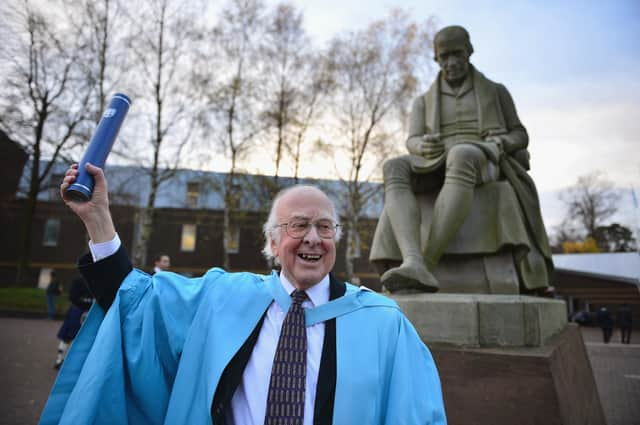The truly gifted Peter Higgs - Angus Robertson


One of these was Professor Peter Higgs, the Nobel Prize-winning physicist, who was renowned for his ground-breaking work on the Higgs boson – or ‘God particle’.
His association with the University of Edinburgh, where he spent much of his career, was a testament to the city's long-standing tradition of academic excellence. Edinburgh not only provided a home for Professor Higgs but also served as a vibrant intellectual hub that supported his pioneering research.
Advertisement
Hide AdAdvertisement
Hide AdHis development of the Higgs mechanism, which suggested the existence of a particle responsible for giving mass to other particles, fundamentally changed our understanding of particle physics.
Edinburgers can be proud that his theories have added again to our city’s reputation for producing world-changing (or in this case universe-changing) breakthroughs, whether in science, philosophy, engineering, geology, the arts and beyond.
Higgs’ conduct after his landmark discovery is also a demonstration of his self-deprecation and team spirit. This announcement of the existence of the Higgs boson was greeted with huge cheers and adulation.
But Higgs said: ‘I didn't accept it was me that they were cheering. I regarded it as cheers for the home team, as at a football match. and the home team were the two experiments, Atlas and CMS, with 1,500 members each. That's what it was really about. Maybe they were cheering me too but that was a minor issue."
Rest in peace.